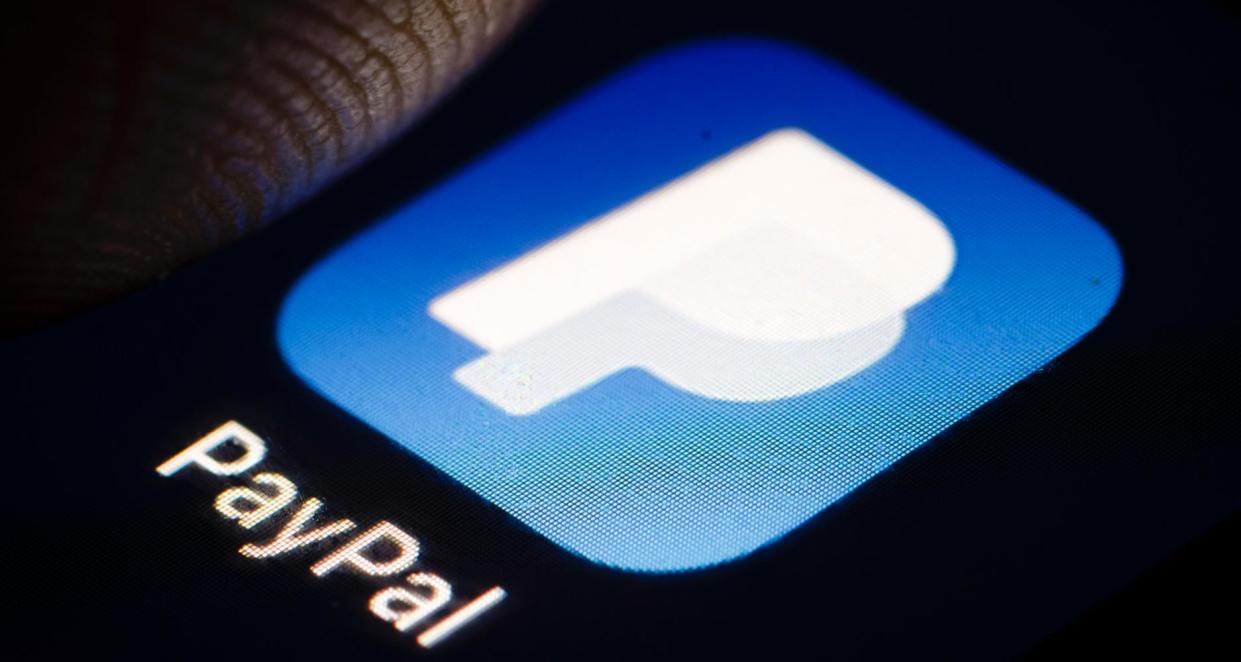PayPal suggests it will be ready to offer 'offline' payments when DMA goes into effect

PayPal is working on a new consumer app for its mobile customers, and suggested that it will be "ready" to take advantage of the new EU regulation, the Digital Markets Act (DMA), when it goes into effect next month for tech "gatekeepers," like Apple. For PayPal, one of the significant changes coming in the DMA is the ability for third-party apps to access the NFC technology that currently powers Apple Pay in their own mobile wallet applications. iPhone users will also be able to switch to another mobile wallet as their default, under the new guidelines.
On its Q4 earnings call, PayPal didn't share much about its plans concerning Apple's compliance with the DMA or how it would impact PayPal specifically. In part, that's because Apple is a company PayPal works closely with today, offering checkout and payment services on Apple devices, from Macs to iPhones, as well as integrations with Apple Wallet, including support for "Tap to Pay" contactless payments which leverage Apple Wallet.
Noted PayPal CEO Alex Chriss, a former Intuit exec who started his new role at PayPal in September, "We are tracking this closely," in response to an investor question about how PayPal would be taking advantage of the new access to the NFC technology the DMA allows for. "Apple is a great partner of ours," he added.
However, Chriss also suggested that PayPal customers have been looking for a way to use PayPal outside the world of online payments and that the company was working on delivering this.
"...our customers that love PayPal on the online e-commerce side are demanding being able to have an omnichannel and offline solution, as well. So, we'll be working closely on this. And when it is available, we will be ready to be able to deliver for our customers, both online and offline," he responded.
It's not a clear answer, but one that certainly suggests the payments giant is working on something in the area of NFC mobile wallets, particularly given the "offline solution" comment.
Offline payments, meaning those taking place in physical retail stores, is an area PayPal has unsuccessfully tried to expand into for years. Over the past decade, PayPal has tried a range of initiatives on this front, including partnerships with national retailers in the U.S., deals with point-of-sale software and terminal makers, features to pay local shops via its app, acquisitions of mobile wallet technology, the use of QR codes for retailer payments, partnerships with credit cards on offline payments, tools for merchants selling offline and more.
But although the COVID-19 pandemic drove faster adoption of contactless payments, Apple Pay remained the top mobile payment player, at least in the U.S.
As for the EU, Europe has a high mobile wallet penetration, with one 2023 study noting that a majority (72%) actively engage with the technology. Another analysis says Europe's mobile payments market size is estimated to reach $108.35 billion in 2024, then $373.29 billion by 2029. While Apple and Google have gained ground here, 90% of Europeans have used PayPal services, the study said.
Simply put, PayPal has a sizable opportunity to capitalize on Apple's loosened rules in the days ahead, if it chooses.
Apple's DMA-driven changes will include new APIs that let app developers use NFC technology in their banking and mobile wallet apps throughout the EU. Plus, Apple is adding new controls that would allow consumers to select a third-party contactless payment app as their new default. In other words, PayPal could be swapped in for Apple Pay, if it adopts this functionality.
Chriss didn't share when PayPal would implement the "offline" solution the DMA would enable, only saying that the company would be "ready" to do so, at some point after the new functionality became available.
Possibly related to this, PayPal also offered hints of a new consumer app in development at the company.
"This year, we're launching and evolving a new PayPal app to create habituation," noted Chriss.
Later, he also admitted that PayPal's "mobile experience for our consumers, has been underwhelming. And it's something that with the new innovations we just rolled out, I expect for us to be able to continue to see improvement there," he added.
Recently, PayPal introduced a series of AI-powered features, including personalized cashback offers in the app and smart receipts that offer suggestions of what to buy next from the same brand, for example. These features and others were announced as part of a "first look" experience in January, which Chriss said was done in 60 days, instead of the "months or years" they could have taken.
Investors didn't dig in to ask more DMA or mobile wallet-related questions, but the company already announced when select new features would launch, like CashPass (personalized cashback) due out in March, with Smart Receipts said to be coming soon.
PayPal in Q4 beat on earnings with EPS of $1.48, above the $1.36 expected, and revenue of $8.03 billion, ahead of the $7.87 billion expected. The stock dropped after the earnings announcement, however, because of weaker-than-expected first-quarter guidance.

 Yahoo Movies
Yahoo Movies 
